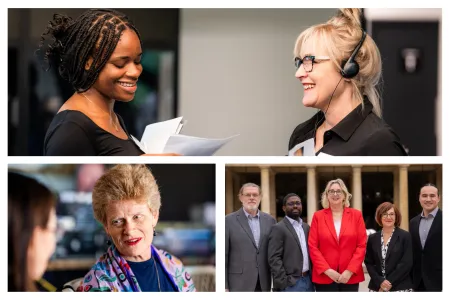
"The Noxious Datafication of the Housing Market" by Alexandre Petitclerc and David Eliot (2022 Scholars)

Cynthia Milton: Dealing with the Afterlife of the TRC
Focusing on the more than 1,200 objects that Canada's Truth and Reconciliation Commission (TRC) collected during its hearings, the article shows that the post-TRC life of the objects opens up new museological spaces and practices through the ways the objects are curated (or not) for remembering and learning about residential schools according to Indigenous protocols and ways of thinking and feeling.
Dr. Cynthia Milton’s interdisciplinary research projects study inclusive modes of truth-telling, truth commissions and cultural interventions in the construction of historical narratives following state violence. In her academic networking, she is concerned with the science-society disconnect in our dramatically changing world and the need for the humanities and social sciences in the diffusion of knowledge.
A talk on language, culture and identity by Stéphanie Chouinard and François Larocque (2021 Fellows)
The Pierre Elliott Trudeau Foundation invites you to listen to a podcast produced by Stéphanie Chouinard and François Larocque, Fellows of the 2021 cohort.
They conclude their mandate by leading an interdisciplinary talk that spans the fields of law and political science on the 2021-2024 Scientific Cycle: Language, Culture and Identity.
Discussion between two PETF fellows, a political scientist (Chouinard) and a legal scholar (Larocque), on three important and topical issues in Canada relating to language, culture and identity, the themes of the 2021-2024 Scientific Cycle. Drawing on their experience as committed researchers working in the field of linguistic minorities and Canadian language regimes, minority and Aboriginal rights, Professors Chouinard and Larocque will discuss the political and legal dimensions of the following issues: (1) Canada's bilingual constitution; (2) the right to minority-language education; and (3) the reappropriation and revitalisation of indigenous languages.
Listen now! (Available in French only)

Panel discussion on anti-black racism led by Prince Ekoh (2023 Scholar)

The 2025 Doctoral Scholarship Competition Starts Soon!


The call for nominations for the 2025 Mentors is officially open!

Dr. Jasmine Mah (2021 Scholar) Receives the CMA Award for Young Leaders!

Neurodiversity in Academia by Michael Ogoms (2023 Scholar)


